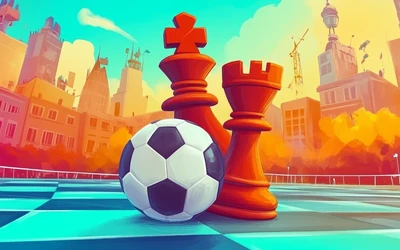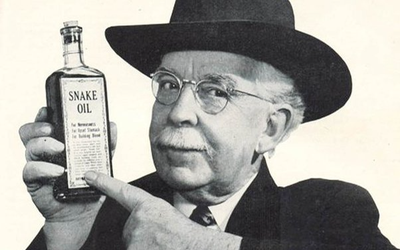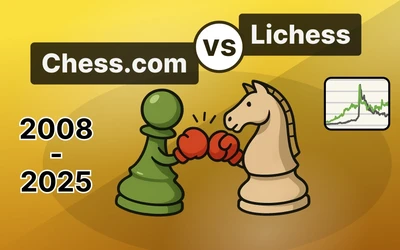
"Play Till Kings": How I Became a National Master by Declining Draws
How Saying “No” Transformed My Game And Why You Should Do the SameThus far, I've spent my past two articles discussing the importance of confidence in chess, specifically, how to build a growth mindset through "good moments", and how to build confidence in training. But how can you translate these skills into over-the-board results?
I stumbled upon this cross-section by accident earlier this year in my hunt for the US Chess National Master title by simply declining draws and resisting the urge to offer them as much as possible. Conceptually, "Play Till Kings" is simple. Quite literally, play until only kings are left on the board. As I've had time to reflect on this mindset since earning the NM title, "Play Till Kings" is a hunt for "good moments".
Generally, in an equal position, if you can create more "good moments" than your opponent, you can create enough momentum to push for a result. While this won't always translate to a win, having a growth mindset during a game gives you the best chance of winning. By accepting or offering a draw, you miss out on this opportunity to outmuscle your opponent in the most critical phase of the game: the endgame.
Winning Out of Survival
My "Play Till Kings" inspiration was born out of necessity. After taking a year off from competitive chess to complete my graduate school admissions process, I registered for the Old Line Open last March. With a section rating requirement of 2000+, re-adjusting to tournament life proved difficult, as I started with a paltry 0.5/3. However, my score was not as poor as it seemed. After losing the opening round to an IM, I was outplayed and lost a long endgame against a WIM. In the third round, I played my friend, NM Max Farberov, in an incredibly complex tactical fight which led to a draw by repetition:
When I analyzed the game later that night, I was pleasantly surprised to find that Max and I had both played the engine's best move nearly every move of the game, with the evaluation never moving beyond 0.5 of equality in either direction. Even with my poor score, I focused on the "good moments" from my third round, and it gave me the confidence I needed heading into the final day.
My fourth round, however, set up an interesting task. Paired with Black against an NM, I realized that with either a loss or a draw, I would be guaranteed to receive a full-point bye in the final round. My top priority was to play the best chess I could (regardless of the result), but I had booked my hotel and taken the following day off work in anticipation of playing the final round; a full-point bye would instantly negate that additional investment with nothing to show for it. So I decided to "Play Till Kings" - don't let the evaluation influence my play, but don't accept or offer draws, no matter how equal the position might be.
With the win, I was awarded a final round game, this time against a well-regarded local expert. I realized that with a win, I could gain rating points despite my slow start to the tournament. So for the second time that day, "Play Till Kings" became my mantra. My opponent kept equality for most of the game, but my previous studies of Ulf Andersson's endgame technique, specifically his 1979 classic over Marcelo Tempone, gave me just enough of an edge:
Despite the slow start, I fortuitously finished 2.5/5. As I rode the train home the next day, I took a couple of notes reflecting on my new "Play Till Kings" Mindset:
- The decision not to accept or offer draws didn't influence my decision-making at all. My approach to calculation and evaluation was the same, and I stayed objective throughout both games. By keeping the games going, I was merely giving my opponents extra chances to mess up, and in both cases, they did.
- This mindset shift was only a result of the tournament situation. If a win wasn't necessary in the fourth round, it would've been super easy to offer a draw and be happy with a split point against a higher-rated opponent. In the last round, it would have been so easy to "give up" in light of my opponent's stubborn defense. In my mind, this was a problem. By not extending games, I was missing out on my opponent's potential future blunders. That realization was sobering. How many half-points had I given up over the years just to "lock in" a good result?
- In a five-round event, this didn't really have an impact on my stamina. If anything, winning the fourth game gave me a lot of confidence, and I was able to go into my last round pretty refreshed and energized.
Knowing that every game this summer would be valuable in my chase of the National Master title, I decided to "Play Till Kings" in all of my games moving forward to see if I could keep squeezing results.
Of note (and to safeguard from the comment section!), I did make two exceptions:
- Accept a draw offer if I am in a clearly worse position
- Accept a draw if it clinches the National Master title
I am in a fortunate enough position personally to not worry about prize money, so in my circumstances, this wasn't a consideration. That being said, I recognize this as a completely fair reason to accept a draw overall.
Endgames, Endgames, Endgames
Full disclosure, when I made this pivot, I knew that statistically, I was likely to lose a game from an equal position myself. While this was a risk, if I scored just one win over 50% in these game situations, my strategy would be justified as positive EV (expected value). To further build confidence in these moments, I worked through most of Aagaard's Grandmaster Preparation: Endgame Play with my long-time friend, NM Sam Martin (future 2025 U2200 World Open winner) over Zoom every week.
The self-inflicted loss never came. In the last eight games I played against U2100-rated opponents, I scored 7.5/8. While beating my first GM and scoring a couple of key wins against NMs put me over the top, this unbeaten streak set the standard I needed to crack 2200 and finally earn the National Master title.
"Play Till Kings" proved crucial the following weekend in the DC Chess League, where I had lost a significant opening advantage, and my team needed me to win to secure the match:
Certainly fortuitous, but again, Caissa rewarded persistence. In the Colonial Open the following month, I declined four draws, three of which I managed to convert into wins.
In my last round game, I was completely lost in the opening. However, after some stubborn defense and fortuitous missteps from my opponent, I was able to turn the tide in the endgame. My opponent offered a draw at the precise moment where the most calculation was needed to find the win:
As you may recall from my first blog, everyone makes mistakes. In some of the above games, the positions were painfully equal, but what might be obvious to you might not be to your opponent. Make your opponents prove equality, and trust that the pressure you can induce on the position can lead to positive outcomes.
"One bad move nullifies forty good ones." - Al Horowitz, 1959
Closing Thoughts
If you're reading through this and thinking your endgame technique isn't at a level where this strategy is viable at your level, that's probably a sign that you need to work on your endgames. Over a large sample size, your endgame knowledge only needs to be in the 51st percentile amongst your opponents to justify this approach. If you're looking for free resources to build your endgame knowledge, I wrote a couple articles on my old blog, Chess^Summit, nearly a decade ago, targeting 1800+ rated players:
- Endgame Essentials: Activity Wins Endgames ... Just Ask Carlsen!
- Endgame Essentials: Battle of the Better-Placed Rook
- Endgame Essentials: Woes of the Inferior Pawn Structure
- Endgame Essentials: Pushing Your Chances
- Endgame Essentials: Dramatic, not Drawmatic!
As I forced myself to go through this process, I found that quite often, my opponents would offer a draw in the precise moment they were most unsure about their position - this was especially true in endgames or strategic middlegames. We saw the example of the draw offer coming after a repetition, but here's another from the next round of the very same tournament.
The "Play Till Kings" mindset won’t work in every situation, and it’s not without risk. But if you’re serious about improvement, declining draws is a practical philosophy. It forces you to work on your endgames, stay mentally engaged until the very end, and trust in your ability to convert small chances into real results. Over time, that discipline adds up: not just in confidence over the board, but in rating as well.
You may also like
 FM MathiCasa
FM MathiCasaChess Football: A Fun and Creative Variant
Where chess pieces become "players" and the traditional chessboard turns into a soccer field CM HGabor
CM HGaborHow titled players lie to you
This post is a word of warning for the average club player. As the chess world is becoming increasin… NM isaackaito
NM isaackaitoThe Confidence Formula: Training to Narrow The Gap Between Your Best and Worst
Growing over-the-board confidence stems from developing a consistent foundation you trust NM isaackaito
NM isaackaitoConfidence: It’s Not Just About Playing Well... It’s About Believing You Can
How to stop letting one bad move ruin your whole game ChessMonitor_Stats
ChessMonitor_Stats